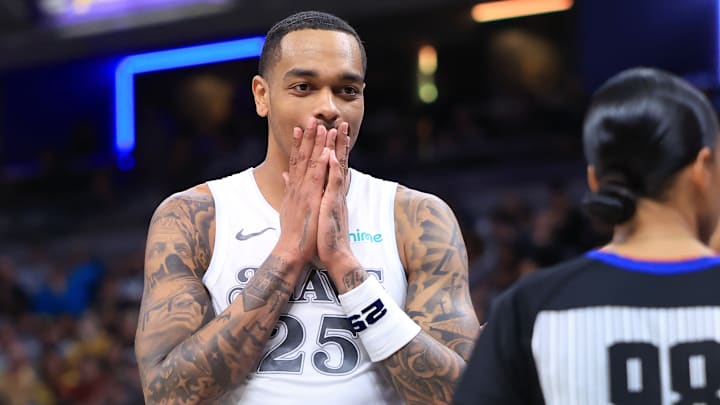The Detroit Pistons and Dallas Mavericks signed contracts this offseason that show two opposing strategies of building a player’s trade value.
The Mavericks chose to reward center Daniel Gafford with a three-year/$54 million deal and extended PJ Washington with a lucrative contract worth $90 million over four years.
That’s about market rate for players in their respective tiers and both players figure to have large roles in the Mavs’ rotation next season.
But Dallas also knows they have a bit of a logjam at the four with Cooper Flagg coming in, so eventually they may have to deal one of their big men to make space.
They are betting that Gafford and Washington will be worth more to teams in trades if they are locked into reasonable deals, and they might be right. Teams like to know what they are getting into and it’s easier to make trades when you can project the money into the future.
The salary cap should continue to rise, which means these players will potentially represent a smaller percentage of their team’s payroll in the future.
All of this makes sense, but with teams increasingly looking for players without long-term financial obligations, the approach the Pistons took this offseason may be the smarter strategy.
Detroit Pistons are keeping the deals short
The Pistons signed two players of their own after coming to a two-year agreement with free agent Caris LeVert and trading for Duncan Robinson and giving him a new contract.
Robinson’s contract looked a tad high, but the full details made it a slam dunk for the Pistons, as the second year is only partially guaranteed and the third isn’t guaranteed at all.
That’s around $30 million of “expiring” contracts after this season and two guys that could easily be packaged in trades to make the money work. These types of contracts will be more appealing to teams that don’t want to take on a bunch of guaranteed money, especially at the trade deadline.
The Mavs are betting those long-term deals will appeal to cost conscious teams looking to save future money, while the Pistons are betting short term deals will be attractive to teams looking to clear cap space sooner, which seems to be most of the teams in the league right now.
It will be interesting to see how these four contracts play out, as there is a good chance that all of the players end up on different teams at some point.
There’s less risk involved with the way the Pistons are doing business, as they aren’t going to get stuck with bad deals and won’t have their long-term flexibility affected by players who don’t meet expectations.
